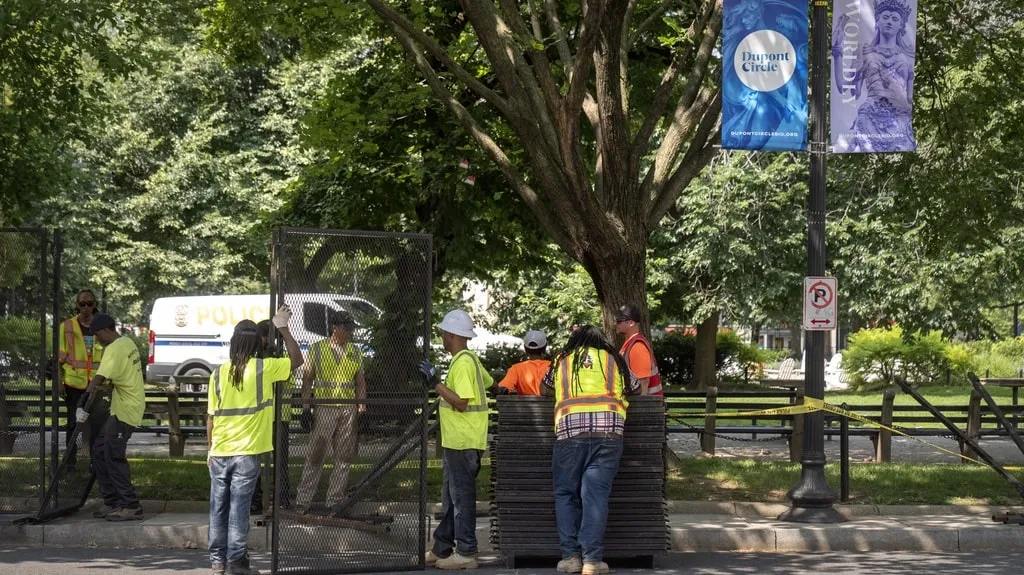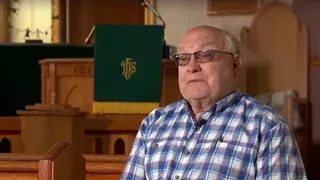March 21, 2012
Griffin wants to leave HRC's past behind
Kevin Mark Kline READ TIME: 4 MIN.
Incoming Human Rights Campaign President Chad Griffin intends to focus on the future once he takes the helm at the national LGBT lobbyist organization in June.
In a brief interview with the Bay Area Reporter last week, Griffin said rather than rehashing the group's past actions and mistakes, he wants to put his time and energy in moving HRC forward as an agency that represents the entire LGBT community.
"My job is the future," Griffin said during a nearly 15-minute phone interview Friday, March 9.
And he said beginning with his first day on the job, he hopes people, including HRC's longtime critics, judge the agency based on his actions.
"Starting in June, as I take the reins of president of this organization, I will be responsible and accountable," said Griffin, who also predicted, "I am sure I will make mistakes."
One of the lingering issues with HRC, particularly in the Bay Area, is its history on securing protections and rights for transgender people.
As a story in last week's B.A.R. on Griffin's hiring pointed out, Griffin already is facing questions about what he plans to do to make HRC more inclusive of transgender people and supportive of their causes.
Asked about those concerns, Griffin was adamant he would be an ally for transgender people.
"When I say LGBT, there is no letter to be left out," said Griffin, 38, a Los Angeles campaign consultant largely unknown in the local transgender community.
He will also be tasked with rebuilding HRC's image in the Bay Area, which has been tarnished for years. From its endorsing a federal workers rights bill that left out transgender people to perceptions the organization is only concerned about LGBT people with money, HRC has had a tortured relationship with LGBT groups and activists in San Francisco.
The issues led to heated fights and protests over its decision several years ago to lease the Castro storefront once home to the late gay Supervisor Harvey Milk's camera shop. In a move aimed at placating its detractors, HRC partnered with the Trevor Project and set aside space for the youth agency's LGBT teen hotline volunteers to work.
More recently local demonstrators connected with the Occupy movement have targeted HRC's store to protest its embrace of Goldman Sachs, one of Wall Street's biggest firms.
Pressed on how he would work to repair the burned bridges between HRC and San Francisco's LGBT community, Griffin pointed to what his motivation is in accepting the job in the first place.
He sees his main role as giving voice to LGBT youth and people living in more conservative towns and cities that face discrimination on a daily basis.
"I grew up in Arkansas. I know what it is like to live in a town in the middle of America," said Griffin.
Too many LGBT Americans, both young and old, go to bed and lie awake at night fearful of what the next day will bring, said Griffin.
"As long as there is state-based discrimination, those fears will remain. I want to lead the movement and be able to speak for those young people," said Griffin. "If I make every decision through the lens of what is in the best interest of that young person, I will be making the right decisions."
He cautioned that achieving LGBT legal and legislative wins would take time, particularly at the federal level. Nonetheless, Griffin feels a sense of urgency to achieve those goals.
"Our job is to move with great urgency and to act in the best interest of that LGBT person staring at the ceiling at night," he said. "If I do that and am making the best decisions for our very diverse community, whether in Los Angeles; San Francisco; Topeka, Kansas; or Hope, Arkansas, the decisions will be right."
Through his work with the American Foundation for Equal Rights, a nonprofit Griffin founded that filed the federal lawsuit that has led two courts to declare California's same-sex marriage ban unconstitutional, Griffin has become friends with one of HRC's loudest critics, activist Cleve Jones.
Jones told the B.A.R. that he was thrilled to learn about Griffin's hiring and believes he will diversify the D.C.-based organization.
Griffin said he had yet to speak to Jones at length about HRC, but said he expects to seek his guidance.
"He is someone I have learned so much from. I have relied on him day in and day out through this case," said Griffin, who will remain on AFER's board of directors. "He is someone I highly respect for his opinions and I expect him to continue to voice those opinions and advise me. And I expect I will continue to learn from Cleve."
Visited California counties
His may not be a household name, despite the work he has done with the Proposition 8 lawsuit. But Griffin is no stranger to the Bay Area, having spent countless hours in San Francisco due to the court proceedings.
He estimated he has visited all 58 counties in California due to his advocacy work.
"California, after Arkansas, became my true home," said Griffin.
Many Bay Area residents that the B.A.R. has spoken with about Griffin's hiring, from HRC insiders to queer progressives, see the change in leadership at the agency as a chance to move beyond the troubles of the past.
"He's not afraid to speak his mind, he's a great fundraiser, he's got a ton of energy, and has some out of the box ideas," Simone Campbell, a lesbian comic who hosts the online radio show Urban Fringe, told the B.A.R.
Another fan of Griffin's is San Francisco City Attorney Dennis Herrera, who has known him for several years now due to the fight for marriage equality in the state.
In a statement about HRC's hiring Griffin, Herrera noted that he has "come to regard Chad as a great friend and trusted adviser ... Chad's boundless energy and passion for justice will be enormous assets to the LGBT community and its allies in the struggle for equality."
Back in 2008 Herrera hired Griffin's political firm as his primary campaign consultant after forming his own political action committee aimed at defeating Prop 8. Herrera merged his PAC activities with the larger campaign at the urging of the No on 8 leaders.
Of Griffin, who helped him raise hundreds of thousands of dollars that were then funneled to the No on 8 committee's coffers, Herrera called him "a visionary leader, a brilliant strategist, and a remarkably effective consensus-builder."







